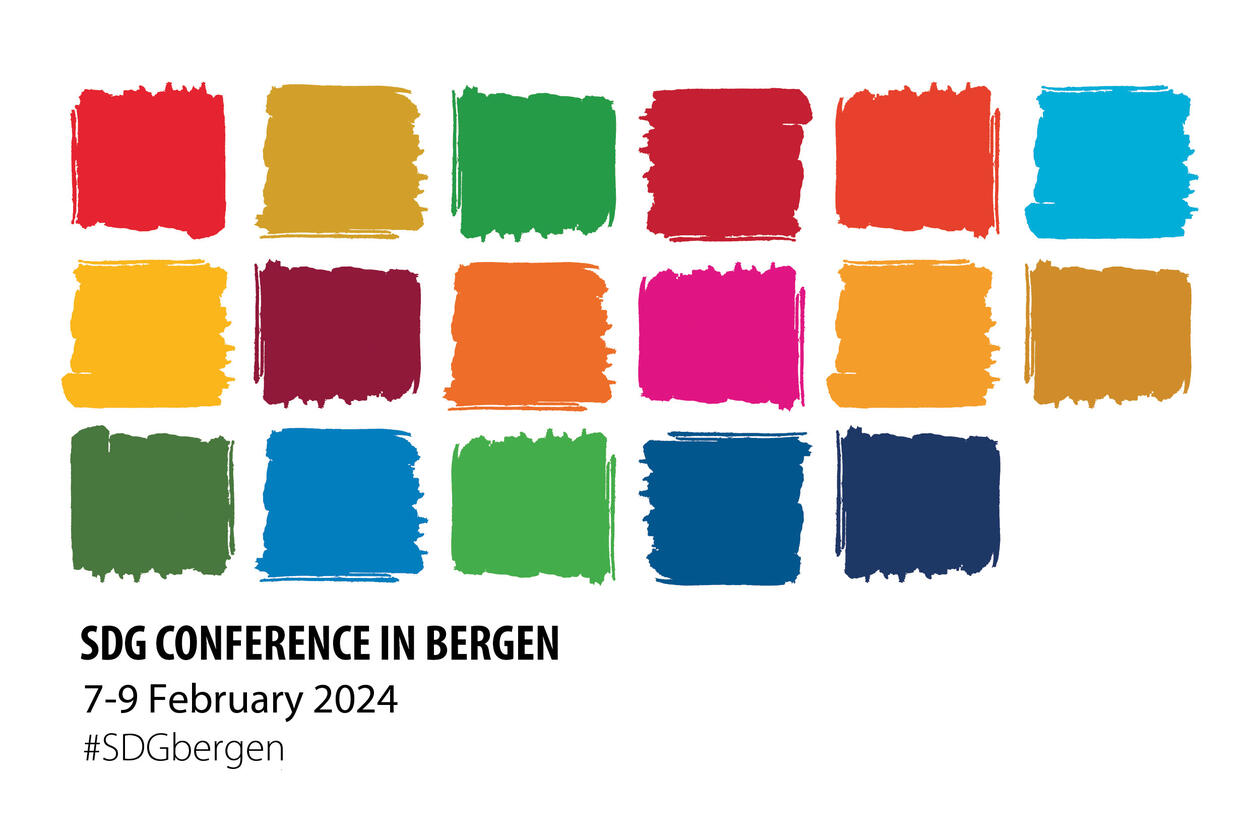The role of universities in transformative change
Read the concept note for the SDG Conference Bergen 2024.

Hovedinnhold
There is an urgent need for transformative changes as mounting environmental crises increasingly disrupt life on Earth and the fabric of communities. The SDG Conference Bergen 2024 aims to explore and articulate the multitude of roles that universities can and should have in transformative change processes. We will investigate promising patterns of collaboration and how to include multiple perspectives, insights, and wisdoms in innovative solutions.
After yet another year of life-threatening, record heatwaves on land and at sea, as well as devastating wildfires and floods, a long line of reports shows that the world is still developing in unsustainable directions. The climate and environmental crises coalesce with the rising cost of living and inflation, increasing inequities and famines, and national and regional unrest and wars.
To tackle the crises of human-induced climate change, biodiversity loss, and unsustainable consumption, societies face the need for rapid, deliberate, transformative change. As pointed out by the United Nations Environment Programme (UNEP), this includes urgent and “fundamental change in technological, economic and social organization of society, including world views, norms, values and governance”[1].
Universities and other higher education institutions are expected to play a central role in advancing sustainable modes of living on this planet and tackling wicked problems. Yet taking this role is not a straightforward endeavour. Universities should take an active part and be an active presence in the societies they are part of, and they are increasingly expected to influence policy, be more open, and be more engaged in transdisciplinary research and education.
Issues of trust, social relevance, and personal significance complicate exchanges with societal actors, as natural scientists struggle to shape knowledge into usable forms, and decision-making is becoming even more complex and politicised. In addition, the climate and environmental crises can be addressed only in conjunction with the challenges of inequality, inclusion, and marginalisation. Universities’ deeper involvement with society must include co-creation processes and citizen science approaches while balancing academic freedom and independence. The struggles to confront environmental crises make universities’ role as autonomous institutions that nourish critical debate and inquiry more important than ever.
The complexity of sustainability is also challenging education at all levels. Students in higher education need to learn from and actively engage in transformation, develop action competence, and maintain hope for a better future. Universities play a role in shaping society through professional and teacher education, through collaboration with schools and other stakeholders, and by preparing students for and sustaining lifelong learning. Education is required as a foundation for meaningful action, policy, and hands-on collaboration to create social transformation.
Tensions and disagreements need to be considered sources of learning in the quest for new narratives and new ways of relating one’s sense of self to society and nature. These discussions need to acknowledge the inclusion of multiple perspectives, including important insights and ways of being in indigenous knowledge systems. Transformative change requires the inclusion of bottom-up initiatives and ownership. To mobilise and earn the support of citizens in different areas of action in all areas of society, citizens need to see and experience change that matters.
The SDG Conference Bergen 2024 aims to articulate policies and action points for universities for opening credible paths toward sustainable futures.
[1] United Nations Environment Programme (2021). Making Peace with Nature: A scientific blueprint to tackle the climate, biodiversity and pollution emergencies, p. 15.
